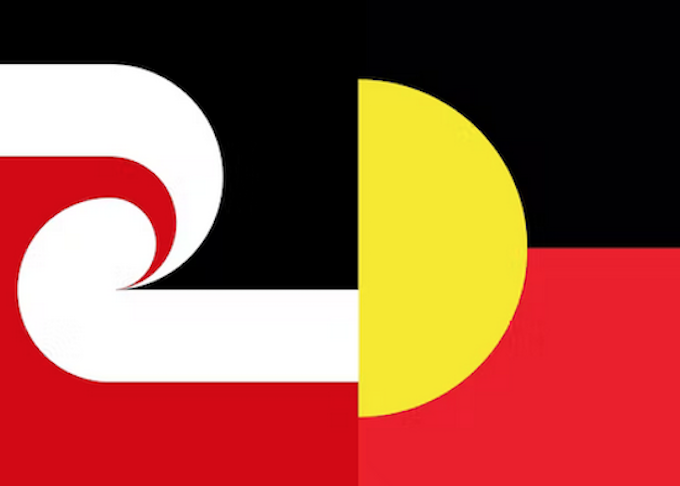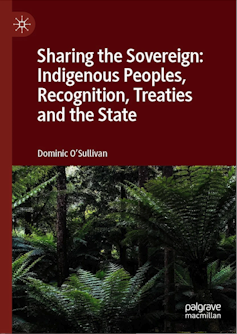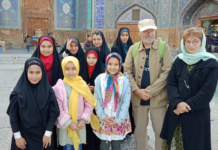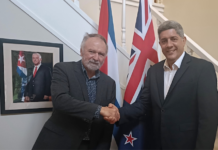
ANALYSIS: By Dominic O’Sullivan, Charles Sturt University
Crisis is a word often used in politics and the media — the covid crisis, the housing crisis, the cost of living crisis, and so on. The term usually refers to single events at odds with common ideas of what’s acceptable, fair or good.
But in New Zealand, Australia and elsewhere, Indigenous policy can be portrayed as a different kind of crisis altogether.
Indeed, it can often just seem like one crisis after another, one policy failure after another: poor health, poor education, all kinds of poor statistics. A kind of permanent crisis.
- READ MORE: Indigenous recognition is more than a Voice to Government – it’s a matter of political equality
- Racism, exclusion and tokenism: how Māori and Pacific science graduates are still marginalised at university
- Can colonialism be reversed? The UN’s Declaration on the Rights of Indigenous Peoples provides some answers
Policy success, on the other hand, often doesn’t fit the crisis narrative: record low Māori unemployment, for instance, or the Māori economy being worth NZ$70 billion and forecast to grow 5 percent annually.
It may be that crisis makes better headlines. But we also need to ask why, and what the deeper implications might be for Indigenous peoples and policy in Aotearoa New Zealand and Australia.

Colonialism as crisis
Last month, I published a journal article titled “The crisis of policy failure or the moral crisis of an idea: colonial politics in contemporary Australia and New Zealand”. In it I argue that when public services don’t work well for Indigenous peoples, the explanation does not just come down to isolated examples of policy failure.
The solution is not that governments simply get better at making policy. Instead, colonialism itself is what I call “the moral crisis of an idea”.
Earlier this year, former Australian Prime Minister Scott Morrison said that Indigenous policy usually fails because:
[Governments] perpetuated an ingrained way of thinking, passed down over two centuries and more, and it was the belief that we knew better than our Indigenous peoples. We don’t. We also thought we understood their problems better than they did. We don’t. They live them.
Morrison was describing a problem with the way the system ordinarily works. Yet a crisis is supposed to be something out of the ordinary, something that needs fixing. How, then, do we fix an idea?
Listening, reflection and justification
Colonialism presumes a moral hierarchy of human worth. It presumes Indigenous people shouldn’t have the same influence over public decision making as others (for example, ensuring a hospital or school works in their favour).
Addressing this problem is the point of the Māori Health Authority, established in New Zealand last month, and the Māori Education Strategy released in 2020.
The democratic theorist John Dryzek says there is a crisis of communication in modern democracy. This is because people understate the importance of listening, reflection and justification in public decision making.
Colonialism, however, doesn’t require listening, reflection or justification. Its essential idea is that some people just aren’t as entitled as others to a meaningful say in public policy.
Entrenching listening, reflection and justification in the workings of democratic politics would support different and non-colonial aspirations. This is something I have called “sharing the sovereign” in my 2021 book of the same name.
Sharing the sovereign
Sharing the sovereign means recognising many sites of decision-making authority. This is the point of the treaties being considered in Victoria, the Northern Territory and Queensland. It’s also the point of Te Tiriti o Waitangi/the Treaty of Waitangi in Aotearoa New Zealand.

Te Tiriti affirmed the Māori right to authority (rangatiratanga) over their own affairs. It also conferred on Māori the rights and privileges of British subjects, which continue to evolve as New Zealand citizenship. This was the right to influence the affairs of the new state — the right to be part of the new state in a meaningful way.
Successive Waitangi Tribunal reports show that crisis in Māori policy occurs when these two simple ideas of independent authority and meaningful participation in the state are absent.
In Australia, the Victorian Treaty Assembly says: “Treaty is a chance to address [the] future together as equals”. The idea of an Indigenous voice to Parliament, which the new Australian government is supporting, is also a step towards sharing the sovereign among all citizens.
In Aotearoa New Zealand, sharing the sovereign would mean the Crown is not, in the words of the first Māori judge of the Supreme Court, Justice Joe Williams, “Pakeha, English-speaking, and distinct from Māori”.
Political equality then becomes possible because the sovereign is not an ethnically exclusive entity. It’s not an all-powerful authority over which Indigenous people should not expect any real influence.
Colonialism under permanent scrutiny
Equality through inclusivity is fundamentally different from colonialism and its inherent moral crisis. Equality and inclusivity make different assumptions about what the state is and to whom it belongs.
However, normalising public institutions to work for Indigenous peoples as well as they work for anyone else is still a contested idea. In 2019, for example, the New Zealand cabinet instructed public servants on the questions they should consider when advising ministers on Treaty/Tiriti policy.
On one hand, cabinet affirmed Māori influence in the policy process. On the other, it didn’t consider the possibility that governments might sometimes stand aside entirely in the making of effective and fair public policy. So, cabinet didn’t require advisers to ask questions such as:
- Why is the government presuming to make this decision?
- And why does the decision not belong (partly or entirely) to the sphere of tino rangatiratanga (self-determination, sovereignty)?
Asking these kinds of questions involves sharing the sovereign. They presume listening, reflection and justification to put colonialism, as the moral crisis of an idea, under permanent scrutiny.![]()
Dr Dominic O’Sullivan, is adjunct professor, Faculty of Health and Environmental Sciences, Auckland University of Technology, and professor of political science, Charles Sturt University. This article is republished from The Conversation under a Creative Commons licence. Read the original article.














































